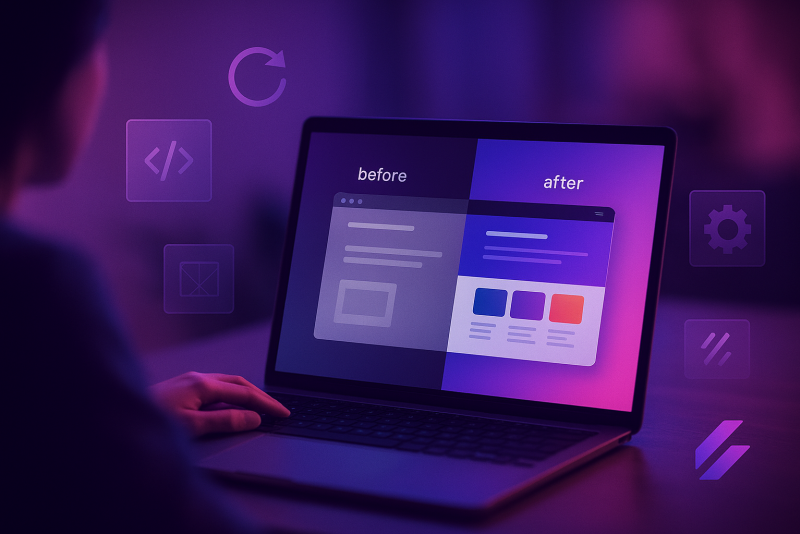The Importance of Sustainable Web Design
Every action on the web consumes energy, from loading pages to processing data. As internet usage grows, so does its environmental impact. Sustainable web design aims to minimise this impact by reducing energy consumption and optimising performance.
Optimising Frameworks: Laravel and VueJS
Framework choice significantly affects a website’s efficiency. Laravel and VueJS, when optimised, outperform traditional WordPress or template-based websites. These frameworks reduce server stress, using less power and bandwidth per site. This efficiency not only enhances performance but also lowers the environmental footprint.
Writing clean, concise code is fundamental. Minimise code to reduce the amount of data processed and transmitted. Additionally, optimise images and videos by compressing media files to decrease load times and energy usage. Efficient frameworks like Laravel and VueJS further streamline these processes, making websites not only faster but also more eco-friendly.
Performance, UX & Accessibility Optimisation
Performance optimisation is essential for both user experience and sustainability. Implement caching mechanisms to reduce server load and improve speed. Content Delivery Networks (CDNs) help by delivering content more efficiently, reducing the distance data travels and thus conserving energy.
Designing intuitive navigation improves user experience by reducing the number of page loads. An accessible website is not only inclusive but also prevents unnecessary resource consumption. By making your site usable for everyone, you enhance efficiency and sustainability.
Regularly auditing and removing outdated or unnecessary content keeps your site lean and efficient. This practice ensures that only relevant data is processed and stored, further reducing energy consumption.
Benefits of Sustainable Web Design
Adopting sustainable web design practices has multiple benefits. Environmentally, it reduces energy consumption and carbon emissions. Financially, it lowers costs related to hosting and bandwidth. Additionally, better-performing websites enhance user satisfaction and improve SEO rankings.
What does all this mean?
Embracing sustainable web design practices is not only an environmental responsibility but also a business advantage. By choosing efficient frameworks like Laravel and VueJS and optimising code, businesses can reduce their digital carbon footprint. Sustainable web design leads to better-performing websites that benefit both the planet and the bottom line.
Interested in making your website more efficient and eco-friendly? Get in touch with us today!




